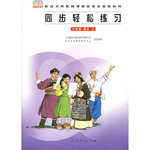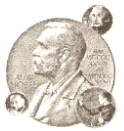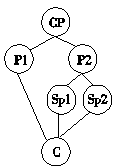题目内容
【题目】任务型阅读
Many of us invest valuable time,energy and money planning our vacations. We do this because we know for sure that going on vacations must be good for us. Research proves this feeling without a doubt. Vacations help us perform better at work, improve our sleep quality and cushion us against depression.
Yet, despite these benefits, many of us return home with a feeling that our last vacation was OK - but not great. In order to change this, some mistakes should be avoided. A classic one for vacation planners is attempting to maximize value for money by planning trips that have too many components (组成部分) Perhaps you're planning a trip to Europe, seven cities in 10 days,and you realize it will cost only a little more to add two more destinations to the list Sounds fine in theory, but hopping from one place to the next hardly gives an opportunity to experience what psychologists call mindfulness - time to take in our new surroundings, time to be present and absorb our travel experiences. Another mistake is that we worry too much about strategic issues such as how to find a good flight deal,how to get from A to B,or which destinations to add or subtract from our journey. These issues may seem important, but our psychological state of mind is far more important.
Actually, vacation happiness is based on the following top rules. First, choose your travel companions wisely, because nothing contributes more significantly to a trip than the right companions. Second,don't spend your vacation time in a place where everything is too expensive so as to maintain a positive mood. Third, shop wisely, for meaningful experiences provide more long-term happiness than physical possessions.
①
②
③
④
⑤
⑥
⑦
⑧
⑨
⑩
【答案】Vacations;performance;quality of sleep;attempt;worry;good flight deal;adding;rules;choice;shopping wisely
【解析】本文是一篇议论文,介绍了度假虽然对我们有很多的好处。与此同时,我们在度假方面也有许许多多的误区。因此,文章作者对我们如何度过快乐的假期给予我们几条实用的建议。
(1)考查名词。文章多次出现vacation及vacations,填写的时候注意首字母大写以及复数形式。
(2)考查名词。根据第一段中的最后一句Vacations help us perform better at work, improve our sleep quality and cushion us against depression.可以归纳出答案,注意动词perform变为名词。
(3)考查短语。。根据第一段中的“Vacations help us perform better at work, improve our sleep quality and cushion us against depression.”可以归纳出答案。
(4)考查名词。根据第二段中的“A classic one for vacation planners is attempting to maximize value for money by planning trips that have too many components (组成部分).”可以归纳出答案,原句的动词转换为名词。
(5)考查名词。根据第二段中的“Another mistake is that we worry too much about strategic issues”可以归纳出答案。
(6)考查短语。根据第二段中的“such as how to find a good flight deal,how to get from A to B,or which destinations to add or subtract from our journey.”可以得出答案。
(7)考查动名词。根据第二段中的“such as how to find a good flight deal,how to get from A to B,or which destinations to add or subtract from our journey.”由add转换为adding。
(8)考查名词 。根据第三段中的“Actually, vacation happiness is based on the following top rules.”可以归纳出答案。
(9)考查名词。根据第三段中的“First, choose your travel companions wisely, because nothing contributes more significantly to a trip than the right companions”.中有动词choose转换为词组make a choice。
(10)考查短语。根据最后三段中的“Third, shop wisely, for meaningful experiences provide more long-term happiness than physical possessions.由shop wisely转换为shopping wisely。”

 同步轻松练习系列答案
同步轻松练习系列答案 课课通课程标准思维方法与能力训练系列答案
课课通课程标准思维方法与能力训练系列答案






